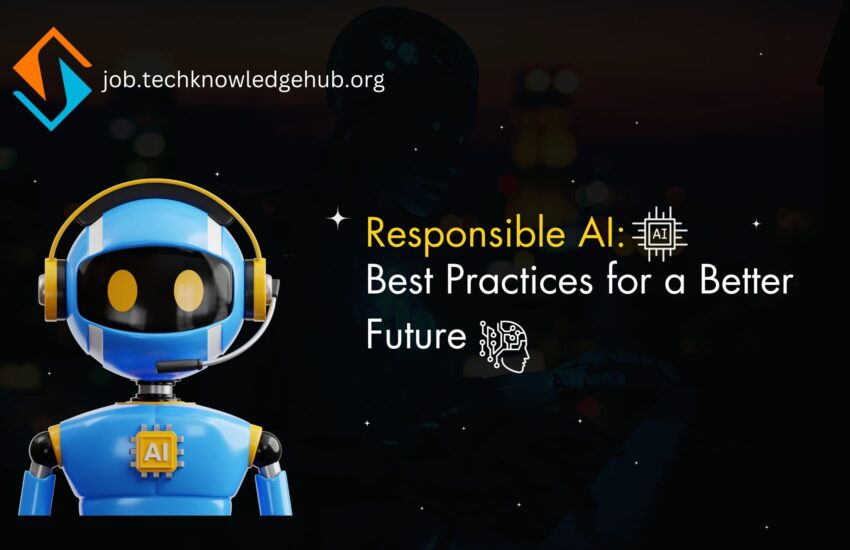Introduction
Artificial Intelligence (AI) has revolutionized the way we live and work, bringing immense opportunities and benefits to businesses and society as a whole. However, with great power comes great responsibility. As AI continues to advance, it is crucial that we establish best practices to ensure its responsible and ethical use.
In this blog post, we will explore some of the key best practices for responsible AI and how they can contribute to a better future.
1. Transparency and Explainability
One of the fundamental aspects of responsible AI is transparency. It is essential that AI systems are designed in a way that their decision-making processes are transparent and understandable to humans.
By providing explanations for AI decisions, we can build trust and alleviate concerns about potential biases or unfair outcomes. This can be achieved through techniques such as interpretable machine learning models or by incorporating human-readable explanations into the system’s outputs.
2. Fairness and Bias Mitigation
Another crucial aspect of responsible AI is ensuring fairness and mitigating biases. AI systems are trained on data, and if the training data is biased, it can lead to biased decisions and perpetuate existing inequalities.
Organizations should invest in comprehensive data collection and evaluation processes to identify and address any biases present in the data. Additionally, techniques like algorithmic auditing and diversity in the development teams can help mitigate biases and promote fairness.
3. Accountability and Oversight
Responsible AI requires clear accountability and oversight mechanisms. It is essential to have well-defined roles and responsibilities for AI system developers, operators, and users.
Organizations should establish robust governance frameworks and ensure regular audits and evaluations of AI systems. This helps identify and rectify any potential issues or biases, ensuring that the AI systems are aligned with ethical standards and legal requirements.
Conclusion
Responsible AI is not just a buzzword; it is a necessary approach to shape a better future for all. By prioritizing transparency, fairness, and accountability, we can harness the full potential of AI while avoiding unintended consequences.
Let’s embrace responsible AI practices and work together to build a future where technology serves humanity in the most ethical and beneficial way.

